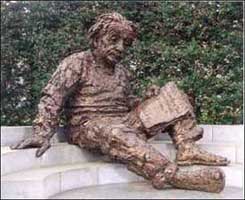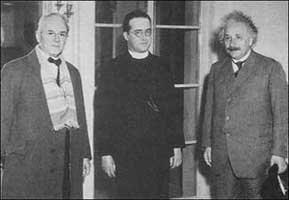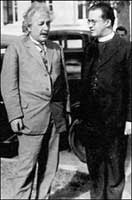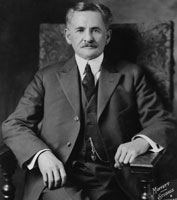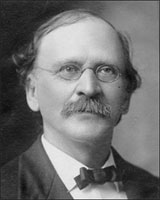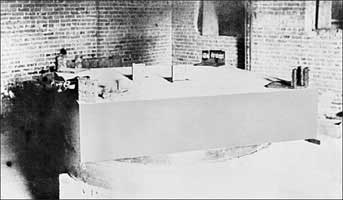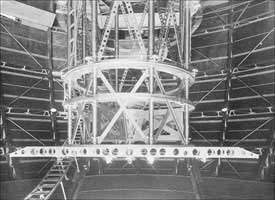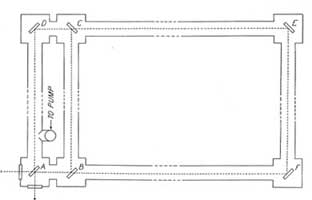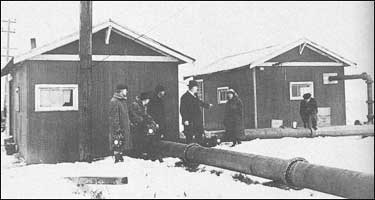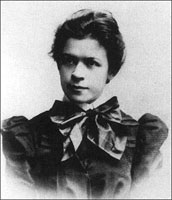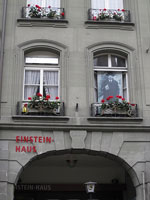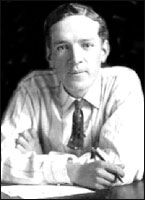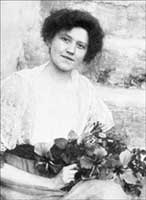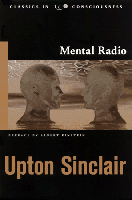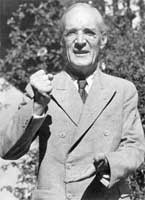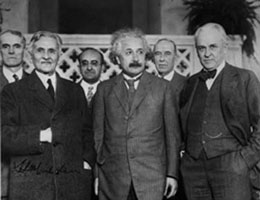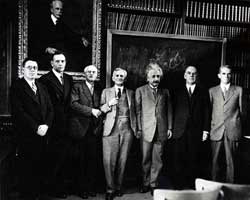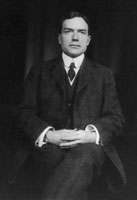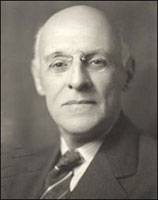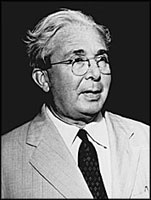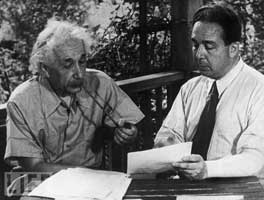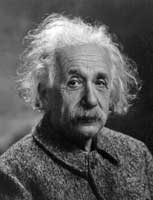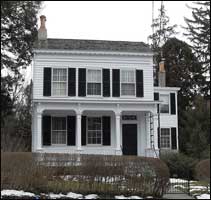THE MAN, THE MYTH, THE LEGEND EXPOSED!! |
"Professor" Albert Einstein is the DARLING of the evolutionists and atheists who deny the existence of JEHOVAH....They LOVE to quote him in their books as they seek to overthrown the Genesis account of the creation of the universe!
Prior to Einstein, all real scientists believed in the existence of the luminiferous ether which carried light waves. One of the greatest proponents of the ether was Nikola Tesla—the man who electrified the world.
|
"Professor" Albert Einstein |
|
Albert Einstein Memorial at the National Academy of Sciences, near the Lincoln Memorial, Washington City. |
There is a reason for everything that happens in the universe, and the Michelson-Morley experiment was the reason why Albert Einstein had to be invented.
|
Here is a quote about this expanding universe from a book by Jesuit priest Lemaître:
Galileo (man from Galilee) demoted the earth to just another a planet orbiting the sunThe expansion of the universe is a matter of astronomical FACTS interpreted by the theory of relativity, with the help of assumptions as to the homogeneity of space, without which any theory seems to be impossible. I shall not discuss the legitimacy of this interpretation, as I do not know any definite objection made against it and this is not the place; and it is not necessary to give a new popular version of the leading principles of the theory of relativity. I shall rather try to show that the universe MUST be expanding, or rather that the most necessary processes of evolution are contradictory to the view that space is and has always been static. (Lemaître, The Primeval Atom, p. 81).
Scientific SUPERSTAR "Dr." Albert Einstein!!
"Dr." Albert Einstein's name is synonymous with GENIUS....In the "scientific" community he is hailed as the greatest scientist since Sir Isaac Newton.
He is credited with discovering the "theory" of relativity and is called the "father" of the atomic age because of the famous equation E=MC2. This formula says that matter can be translated into energy at the incredible rate of the square of the speed of light.
He was the first superstar of "science" and an international icon and media celebrity for most of the first half of the 20th century.
In 1922, he was awarded the Nobel Prize for physics for his work on theoretical physics, and especially for his "discovery" of the law of the photoelectric effect.
In the U.S. he is credited with 'fathering" the atomic bomb because of a letter he wrote to President Roosevelt in 1939, urging him to begin research on producing a nuclear bomb before Nazi Germany.
When asked by the media to define relativity for the non-scientific community, Einstein gave this profound reply:
An hour sitting with a pretty girl passes like a minute, but a minute sitting on a hot stove seems like an hour.
If Albert Einstein had never existed he would have to be invented . . . and here is the reason why!!
The Michelson-Morley experiment was the reason for Albert Einstein!!
Beginning in 1887, U.S. scientist Albert Abraham Michelson began to do experiments to try and detect the motion of the earth around the sun by using the speed of light as a barometer. This experiment was called the Michelson-Morley experiment and was famous for one thing: ALL THE RESULTS WERE NEGATIVE.
|
Professor
Edward Morley |
In 1907, Dr. Michelson was the first U.S. scientist to win the Nobel Prize for physics for his work on accurately determining the speed of light.
In 1869, President Ulysses S. Grant awarded Michelson a special appointment to the U.S. Naval Academy. During his four years as a midshipman at the Academy, Michelson excelled in optics, heat, climatology and drawing. After his graduation in 1873, and two years at sea, he returned to the Academy to become an instructor in physics and chemistry, from 1875 to 1879.
Michelson was fascinated with the sciences and the problem of measuring the speed of light. During this time in Annapolis, he conducted his first experiments on the speed of light, as part of a class demonstration in 1877. After two years of studies in Europe, he resigned from the Navy in 1881. In 1883 he accepted a position as professor of physics at the Case School of Applied Science in Cleveland, Ohio, and concentrated on developing an improved interferometer. In 1887, he and Edward Morley carried out the famous Michelson-Morley experiment which found no movement of the earth relative to the surrounding space.
Michelson's basic experiment was to shoot a beam of light horizontally and vertically over a fixed distance. The speed of the earth through the ether should slow the vertical light. The results were always the same and showed no change.
The famous Michelson-Morley experiment proved conclusively that there are no different velocities of light! They are the same in all directions and their value is c, the speed of light, which strangely enough always remains true to itself, always constant, always unchangeable.
For the mechanist the result is catastrophic. (Livingston, The Master of Light, p. 133).
Instead of acknowledging that the earth did not move, Michelson concluded that the SLEED OF LIGHT was always the same and didn't change:
|
An interferometer for measuring the motion of the earth around the sun used by Dr. Michelson in 1887. |
|
The result of the experiment sent shock waves through the "scientific" community. The last thing the Jesuits would admit was that the Bible was true after all and that the earth did NOT move:
To his utter amazement, the experiment produced a zero effect. Michelson could find no drag on the transmission of light in any direction. He detected only the slightest shift in the interference fringes. Both halves of the split single beam of light were returning at virtually the same instant.
The data were almost unbelievable. The so-called ether wind had had no effect whatever on the velocity of light whether the beam was traveling with the "wind" or across it. There was only one other possible conclusion to draw–that the earth was at rest. This, of course, was preposterous. (Jaffe, Michelson and the Speed of Light, p. 76).
Non-motion of the earth caused a panic in the "scientific" community!!
By 1900, the proof of the non-motion of the earth did not cause Michelson to get on his knees and acknowledge that the Bible was correct after all. Had he and the "scientific" community done so, the whole evolutionary house of sand would have come crashing down. That is the last thing that the Jesuits wanted. Their answer was to use Albert Einstein to invent a completely new theory of the universe called RELATIVITY. So now the scene shifts from the U.S. to Switzerland and an obscure clerk in the Swiss Patent Office named Albert Einstein.
Michelson joined the Rockefeller owned University of Chicago!!
In 1890, John D. Rockefeller took over a Baptist Seminary called Morgan Park Theological Seminary and renamed it the University of Chicago.
After serving as professor at Clark University at Worcester, Massachusetts, from 1889 until 1892, Michelson was appointed professor and the first head of the department of physics at the newly organized University of Chicago. With his big salary from Rockefeller, and the Nobel Prize money, Michelson was content not to make WAVES about the non-motion of the earth.
In 1924, Michelson received a huge grant from the university in order to determine the ROTATION of the earth by using the speed of light. This test consisted of a mile long 12 inch tunnel with all the air removed. As expected, all the results were NEGATIVE.
|
|
|
A rectangular tract of land at Clearing, Illinois, 2010 feet from east to west and 1113 feet from north to south, was carefully surveyed and staked by Dr. Kannenstine, and twelve-inch water pipes were laid straight and level around the entire circuit with a double line across one end.
After months of preparation the experiment took place at Clearing, Illinois, on the prairie some ten miles west of the university, in the bitterly cold weather of early December, 1924. Dr. F. M. Kannenstine carefully surveyed and staked out a rectangular tract of land. The city of Chicago furnished a pipeline a foot in diameter and about a mile long, for the vacuum tube through which the light beam would travel. This was valued at $16,000. The university contributed $17,000. Silberstein, who had offered to finance the whole experiment gave only $500, which did not cover the cost of one eyepiece, (Livingston, The Master of Light, pp. 308-309).
Experimental Test of Theory.–Air was exhausted from a twelve-inch pipe line laid on the surface of the ground in the form of a rectangle 2010X1113 feet. Light from a carbon arc was divided at one corner by a thinly coated mirror into direct and reflected beams, which were reflected around the rectangle by mirrors at the corners. The two beams returning to the original mirror produced interference fringes. The beam traversing the rectangle in a counter-clockwise direction was retarded. The observed displacement of the fringes was found to be 0.236, agreeing with the computed value 0.236.
Einstein's professor says he was a "a lazy dog."
According to professor Hermann Minkowski, Einstein was a dunce and was told to switch from physics to some other subject. For telling the TRUTH about Einstein, Minkowski would die in 1909 at the young age of 45 from a simple appendix operation:
Not that he (Einstein) was always blameless in these situations, and he knew it. He exasperated his autocratic professors because he regarded most of them as irrational or ignorant, and he showed it. His independent, disdainful manner irritated them even more than it had his insecure high-school teacher of Greek. He infuriated physics instructor Jean Pernet, who saw Einstein dump the official instructions on how to conduct an experiment into the wastebasket without a second glance. Pernet complained to an assistant, who daringly replied that Einstein's methods were interesting and his solutions always right. Pernet disagreed. He confronted Einstein. "You're enthusiastic," he conceded, "but hopeless at physics. For your own good you should switch to something else, medicine maybe, literature or law." Math professor Hermann Minkowski didn't see even the enthusiasm in his classes, and called Einstein a lazy dog.
His casual study habits also irritated Heinrich Weber, who had expected great things of him and was irked because Einstein called him "Herr Weber" instead of the more respectful "Herr Professor." For his part Albert was disappointed in Weber for excluding from his history of physics the stunning ideas of James Maxwell. (Brian, Einstein, A life, pp. 17-18).Einstein's wife wrote the relativity papers!!
If "Dr." Albert was clueless when it came to physics, the question remains where did this GENIUS get all his ideas? The answer: His relativity theories came from his fellow student and lover, Serbian Mileva-Maric.
All the Serbs are GIFTED with high intelligence and the greatest and BRIGHTEST Serb of all was Nikola Tesla.
|
Mileva-Maric
Einstein (1875-1948), |
|
Einstein's House in Bern, Switzerland. |
While attending the Swiss Federal Institute of Technology, Albert met and fell madly in love with another student, a Serb named Mileva-Maric.
Mileva was unique in being the only woman in the class and she was exceptionally "gifted." Albert called her his "little witch."
In 1905, when Albert's paper on relativity were submitted, they were signed EINSTEIN-MARITY which was his wife's name. She also received ALL the money from his Nobel Prize in 1922.
Mileva was able to take all the previous information on light waves, electromagnetism, atomic theory, and synthesize them into what became known as the special and general theories of relativity. Even Einstein himself didn't understand any of it.
"Scientist" Einstein attended a séance at the Sinclairs!!
To "Doctor" Einstein everything was RELATIVE, but like Albert Michelson he concluded that the SLEED OF LIGHT was always the same and didn't change. That was the basis of all his ideas and experiments—the FIXED speed of light. He was also very interested in another form of communication called ESP or extra sensory perception.
As an international scientist/celebrity, Einstein visited California in 1931 as a guest of Caltech or the California Institute of Technology.
Early the following year, he had a chance to meet his friend, best-selling author Upton Sinclair, and attended a séance at his house in Pasadena, California.
|
Sinclair practiced mental telepathy with his wife, Mary Craig, and a psychic named Roman Ostoja:
Helen Dukas, Einstein's secretary, gives a different account of Ostoja's psychic skills. "I was at the séance [with Ostoja, a self-proclaimed but dubious Polish count]. And I was frightened to death. Because, before the sitting, Sinclair addressed us and said we shouldn't be afraid if suddenly the piano starts to play and flowers come down from above and so on. And the medium went into catalepsy, and that frightened me. Then, you know what happened? They all sat around the table, those scientists, Professor Einstein, Professor Tolman, and a doctor friend of ours. Sometimes Professor Einstein was in control. It was a real scary atmosphere. And, oh my gosh, suddenly the doorbell rang and I nearly jumped out of my skin. (Brian, Einstein, A life, p. 215).
Consulting familiar spirits or demons is called WITCHCRAFT in the Bible.
|
Here is the preface to the book Mental Radio:
I have read the book of Upton Sinclair with great interest and am convinced that the same deserves the most earnest consideration, not only of the laity, but also of the psychologists by profession. The results of the telepathic experiments carefully and plainly set forth in this book stand surely far beyond those which a nature investigator holds to be thinkable. On the other hand, it is out of the question in the case of so conscientious an observer and writer as Upton Sinclair that he is carrying on a conscious deception of the reading world; his good faith and dependability are not to be doubted. So if somehow the facts here set forth rest not upon telepathy, but upon some unconscious hypnotic influence from person to person, this also would be of high psychological interest. In no case should the psychologically interested circles pass over this book heedlessly. (Sinclair, Mental Radio, preface).
Parapsychology is a discipline that seeks to investigate the existence and causes of psychic abilities and life after death using the "scientific" method!
Albert Michelson died immediately after meeting Albert Einstein!!
While visiting California, "professor" Einstein met Albert Michelson–his raison d'être.
Though he was 79, he kept up a rigorous exercise program and was in good health–until he met Einstein the Poisoner.
|
Trim
and healthy professor Albert Michelson |
|
Einstein and Michelson at the Mount Wilson Observatory in 1931. |
Einstein met his mentor during a visit to California in 1931. The professor was retired but was still full of vim and vigor. He was even planning some more embarrassing earth movement experiments. He died a few months after meeting Einstein.
Einstein's coming to the U.S. meant that the Jesuits would have to get rid of Michelson—and that is EXACTLY what happened a few months later!!
Einstein said that he owed a huge debt to Michelson, and that was true, because if the earth was moving there would be no need for an Einstein:
Einstein later qualified his debt to Michelson in a letter to Michelson's biographer, Bernard Jaffe: Michelson's experiment was of considerable influence upon my work insofar as it strengthened my conviction concerning the validity of the principle of the special theory of relativity. On the other side I was pretty much convinced of the validity of the principle before I did know this experiment and its result. In any case, Michelson's experiment removed practically any doubt about the validity of the principle in optics, and showed that a profound change of the basic concepts of physics was inevitable. (Brian, Einstein, A life, p. 212).
Of course profound change was inevitable because they were about to get rid of the ether.
Rockefeller "prostitution researcher" Abraham Flexner brought Einstein to the U.S.
In 1914, Baptist Sabbath school teacher John D. Rockefeller, Jr., dispatched Flexner to Europe to study PROSITUTION. His instructions DID NOT include preaching Christ to the prostitutes and reclaiming them from a life of sin.
Rockefeller was only interested in how they "do it" over there and he didn't want to miss a trick in his study of the world's oldest profession.
|
Flexner visited male and female brothels all over Europe, and wrote a filthy tome about his experiences entitled Prostitution in Europe.
Rockefeller wanted a complete monopoly on crime and prostitution both in the U.S. and worldwide, and Flexner's study helped him add Europe to his fiefdom.
Here is a quote from the autobiography of Abraham Flexner:
I devoted months to the observation of phenomena connected with prostitution and police in the great cities of England, Scotland, France, Germany, Belgium, Holland, Scandinavia, and Austria-Hungary. My whole way of life had to be changed, for to observe at firsthand how prostitution was carried on I had, instead of retiring, as had been my habit, toward eleven, to be on the streets or in the brothels or the small cafes until the early-morning hours, sometimes as late as three or four o'clock. (Flexner, Autobiography, p. 120).
In October 1933, Abraham Flexner brought Einstein to the U.S. where he became a professor at the Institute for Advanced Studies in Princeton, New Jersey. Einstein would have preferred to live in sunny southern California in order to conduct "experiments" with his close friend Upton Sinclair.
Orders are orders however, and he who pays the piper calls the tune, so Einstein had to live the rest of his life on the not so sunny east coast. In 1941, he was vacationing on Long Island, New York, when he was visited by atomic scientists Leo Szilard and Eugene Wigner.
Einstein knew nothing about nuclear physics!!
Scientist Leo Szilard was very concerned about Nazi Germany obtaining an atomic bomb, so he sought out Einstein and shared his concerns with him.
In August 1939, Leo Szilard asked Einstein to write a letter to FDR about the dangers.
|
Here is a report from the biography of Leo Szilard:
Szilard and Wigner were hot, tired, and impatient by the time they found the two-story white cottage. By contrast, the sixty-year-old Einstein was relaxed and genial; he had spent the early morning sailing in a small dinghy and now greeted his former colleagues wearing a white undershirt and rolled-up white trousers. Einstein bowed courteously as they met and led his visitors through the house to a cool screened porch that overlooked a lawn. There, speaking in German and sipping iced tea, Szilard and Wigner told Einstein about their recent calculations. They explained how neutrons behave, how uranium bombarded by neutrons can split or "fission," and how this process might create nuclear chain reactions and nuclear bombs.
" Daran habe ich gar nicht gedacht," Einstein said slowly, pondering what he had just heard. "I haven't thought of that at all."
Until that summer day, Einstein had believed that atomic energy would not be released "in my time," that it was only "theoretically possible." Einstein had not followed recent discoveries in nuclear research for years and sought only the "time for quiet thought and reflection" needed to unravel his unified field theory of the universe. Einstein had published his famous equation E = MC2 in 1905, but only now was that simple statement's ultimate significance clear. For even a small mass the potential energy released could be immense. Fission is the most efficient way to fulfill Einstein's equation because it releases the energy that gives matter its form—the binding energy holding the atomic nucleus together.
Einstein's next thought about the chain reaction was philosophical. If it works, he said, this would be the first source of energy that does not depend on the sun. Wind and solar energy are created by the sun's heat. And fossil fuels–oil, natural gas, coal–were once created from the carbon made by the sun's energy through photosynthesis. But releasing the binding energy of atoms was something new.
Einstein's third reaction was political. Although he was an avowed pacifist, he agreed to sound the alarm about atomic bombs, even if it proved to be a false one, in order to beat Nazi Germany to this awesome weapon. (Lanouette, Genius in the Shadows, A Biography of Leo Szilard, p. 199).
Nobody in the U.S. government listened to Szilard at that time. Even the Italian scientist Enrico Fermi was reluctant to pursue atomic research.
Dr. Szilard continued to pursue atomic research at Columbia University in New York City, and his frequent nightmare was that Nazi Germany would develop the bomb first.
After Pearl Harbor, everything changed.
Szilard and Fermi worked together at the Rockefeller owned University of Chicago to develop an atomic reactor. Szilard invented the concept of the "breeder" reactor to create plutonium for fuel and atomic bombs.
Einstein had no part whatsoever in the Manhattan Project because he knew NOTHING about physics.
Einstein died in 1955 and was cremated!!
Einstein died in 1955 and was cremated with his ashes thrown on a nearby river. Many people in Europe were claiming to be "fathered" by Dr. Albert, so cremation did away with the vital evidence of his DNA. The Einstein myth did not die with him because the theory of relativity is still fanatically held by evolutionists.
|
The life of Einstein just shows you the scientific results of incest and marriage among close relatives–it produces IMBECELES!!
E=MC2 was already known in 1875!!
In a book published in London in 1875, British scientist Samuel Tolver Preston, stated the relationship of matter moving at the speed of light. Preston believed in the existence of the ether which the theory of relativity denies:
To give an idea, first, of the enormous intensity of the store of energy attainable by means of that extensive state of subdivision of matter which renders a high normal speed practicable, it may be computed that a quantity of matter representing a total mass of only one grain, and possessing the normal velocity of the ether particles (that of a wave of light), encloses a store of energy represented by upwards of one thousand millions of foot tons, or the mass of one single grain contains an energy not less than that possessed by a mass of forty thousand tons, moving at the speed of a cannon ball (1200 feet per second); or otherwise, a quantity of matter representing a mass of one grain endued with the velocity of the ether particles, encloses an amount of energy which, if entirely utilized, would be competent to project a weight of one hundred thousand tons to a height of nearly two miles (1.9 miles).
This remarkable result may serve to illustrate well the intense mechanical effect derivable from small quantities of matter possessing a high normal velocity, the extremely high value of the effect depending on the fact that energy rises in the rapid ratio of the square of the speed. (Samuel Tolver Preston, Physics of the Ether, p. 115).
Vital links
Life and Times of "Dr." Albert Einstein
The Michelson-Morley experiment
References
Bjerknes, Christopher Jon. Albert Einstein, the Incorrigible Plagarist. XTX Inc., Downers Grove, Illinois, 2002.
Brian, Denis. Einstein. A Life. John Wiley & Sons, New York, 1996.
Farrell, John.The Day Without Yesterday: Lemaître, Einstein and the Birth of Modern Cosmology. Thunder's Mouth Press, New York, 2005.
Fölsing, Albrecht. Albert Einstein. Penguin Books, New York, 1997.
Flexner, Abraham. An Autobiography. Simon & Schuster, New York, 1960.
Flexner, Abraham. Prostitution in Europe. The Century Co., New York, 1914.
Highfield, Roger & Carter, Paul. The Private Lives of Albert Einstein. St. Martin's Press, New York, 1993.
Jaffe. Bernard. Michelson and the Speed of Light, Doubleday & Co., New York, 1960.
Lemaître, Georges. The Primeval Atom, An Essay on Cosmogony. D. Van Nostrand, Co., Inc., New York, 1950.
Lanouette, William. Genius in the Shadows. A Biography of Leo Szilard. The Man Behind the Bomb. Charles Scribner's Sons, New York, 1992.
Livingston, Dorothy Michelson.The Master of Light. A Biography of Albert A. Michelson. Charles Scribner's Sons, New York, 1973.
Preston, Samuel, Tolver. Physics of the Ether. E.& F. N. Spon, London & New York, 1875.
Sinclair, Upton. Mental Radio. Charles C. Thomas Publisher, Springfield, Illinois, 1930.
Sinclair, Upton. The Autobiography of Upton Sinclair. Harcourt, Brace & World, New York, 1962.
Williams, Howard R. Edward Williams Morley. Chemical Education Pub., Co. Easton, Penn. 1957.
Zackheim, Michele. Einstein's Daughter, The Search for Lieserl. Penguin Putnam Books, New York, 1999.
Copyright © 2017 by Patrick Scrivener

